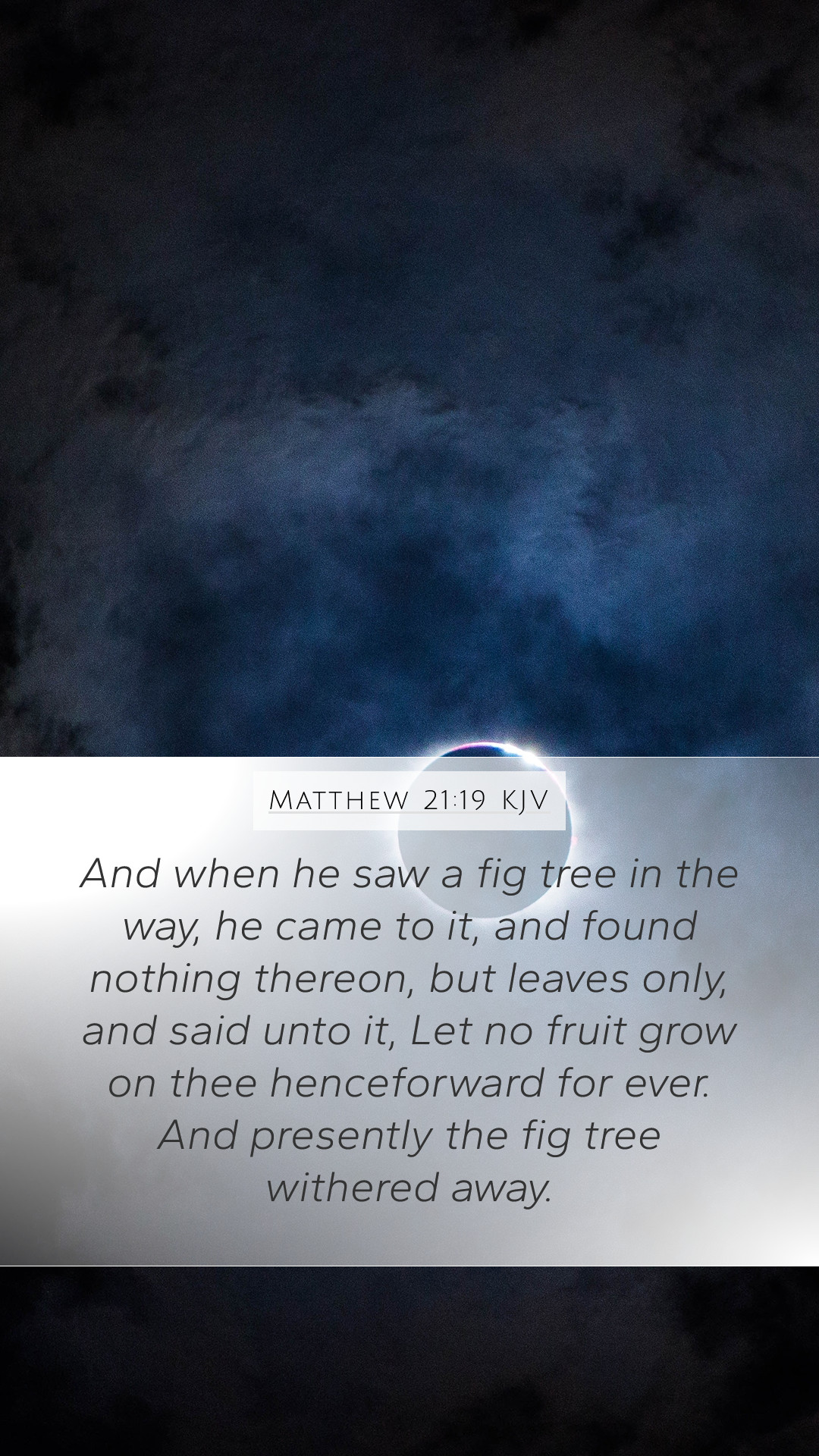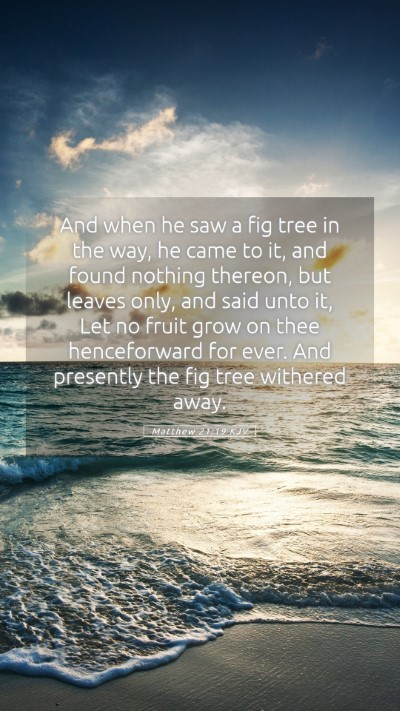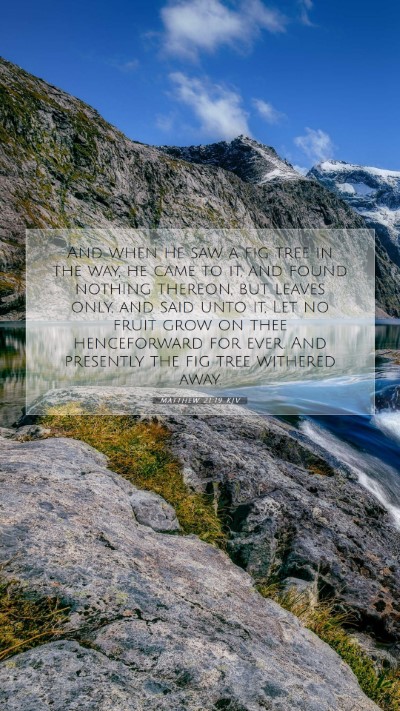Understanding Matthew 21:19
Verse: "And seeing a fig tree by the wayside, he went to it and found nothing on it but leaves only. And he said to it, Let no fruit grow on you henceforward forever. And presently the fig tree withered away." (Matthew 21:19, KJV)
Introduction to the Verse Meaning
The verse Matthew 21:19 offers profound insights into the nature of unfruitfulness and judgment. The actions of Jesus regarding the fig tree symbolize deeper spiritual lessons that echo throughout the Scriptures. In the context of Bible verse meanings and Bible verse interpretations, this passage serves as a reminder of the importance of bearing fruit in one's spiritual life.
Commentary Insights
-
Matthew Henry's Commentary
Matthew Henry emphasizes the symbolic act of Jesus approaching the fig tree. He points out that the tree's abundance of leaves without fruit signifies hypocrisy—the outward appearance of righteousness without the substantive proof of good works. The curse placed upon the tree serves as a warning against spiritual barrenness.
-
Albert Barnes' Commentary
Albert Barnes highlights the importance of the fig tree within the biblical context. He explains that the fig tree was common in ancient Israel and often represented the nation of Israel itself. Barnes suggests that this incident mirrors Jesus' lamentation over Israel’s spiritual state and His expectation for it to produce good fruit—defined as genuine faith and obedience to God.
-
Adam Clarke's Commentary
Adam Clarke brings attention to the specific action of Jesus. He notes that the phrase "Let no fruit grow on you henceforward forever" signifies a definitive judgment. Clarke interprets this act not only as a lesson for Israel but also as a broader message to all believers regarding the necessity of spiritual fruitfulness in response to God's blessings.
Biblical Exegesis and Applications
This verse speaks to the broader themes of God's expectations from His people. As part of your Bible study insights, consider the spiritual implications of this passage:
- Spiritual Vitality: The fig tree with its leaves but no fruit symbolizes a life that appears Christian yet lacks genuine faith and action.
- Judgment and Consequence: The cursing of the fig tree is a poignant reminder of God's judgment on those who fail to live according to His ways.
- Encouragement for Fruitfulness: Believers are encouraged to cultivate lives that bear fruit (see John 15:5), showcasing love, joy, peace, and good works.
Cross References
This verse has significant connections to several other Scriptures, which might further elucidate its meaning:
- Isaiah 5:1-7: This passage describes God’s vineyard and serves as a metaphor akin to the fig tree, illustrating expectations of fruitfulness.
- Luke 13:6-9: This parable of the barren fig tree reinforces the need for repentance and productive lives, emphasizing God's patience.
- John 15:1-8: Jesus speaks about being the true vine and emphasizes the importance of bearing fruit as evidence of true discipleship.
Conclusion and Reflection
In conclusion, Matthew 21:19 challenges believers to cultivate a life that yields spiritual fruit, urging a personal examination of one's faith. This verse serves as a solemn reminder of the consequences of spiritual barrenness and embodies a call to actively engage in good works, rooted in true faith.
As you explore understanding Scripture and engage in Bible study topics, let the messages of this verse inspire you to seek not only a relationship with Christ but also to actively produce fruit in your life.


